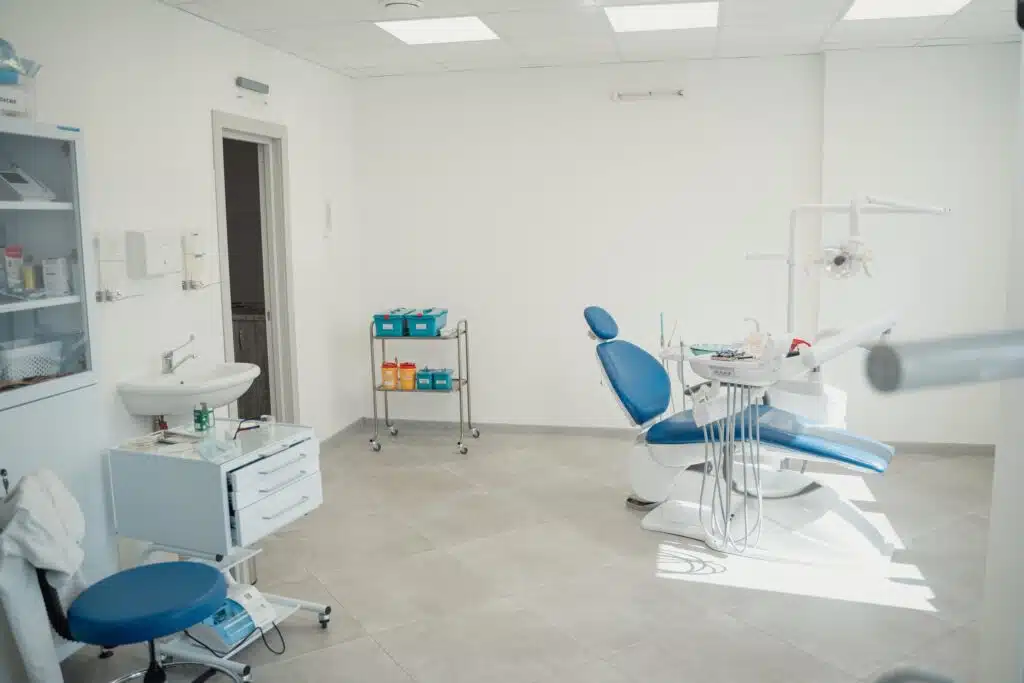Regular professional teeth cleanings are essential to maintaining healthy teeth and gums for a lifetime. Unfortunately, almost one-half of adults older than thirty years will develop some form of gum disease. The risk increases to more than 70% past the age of seventy. One of the effective treatments for mild to moderate gum disease is a treatment known as scaling and root planing. Continue reading to learn more about Scaling and root planning after care.
If you have any questions or concerns about your gum health, schedule an appointment with Trident Dental for a comprehensive oral exam and professional teeth cleaning.
What Is Gum Disease?
Gum disease, also known as periodontitis, is a common oral infection that can lead to tooth mobility or loss. It is caused by the accumulation of dental plaque around your teeth and under the gums. The bacteria in the accumulated plaque causes inflammation known as gingivitis, which is the mildest form of gum disease. Early detection and treatment by removing the plaque can reverse gingivitis without causing any permanent damage to your teeth or gums.
However, a more severe gum inflammation known as periodontitis results when plaque remains. Periodontitis results in the loss of gum attachment to your teeth and jawbone. With no treatment, periodontitis can lead to gum infection, loose teeth, and tooth extraction.
What Is Scaling And Root Planing?
Scaling and root planing is a non-surgical removal of dental plaque and tartar from the roots of teeth beneath the gum line. Dental hygienists and dentists perform this procedure in the early stages of periodontitis to prevent further loss of gums and bone supporting the teeth. The procedure is performed with handheld instruments or ultrasonic devices. In some cases, topical or local dental anesthetics are administered to prevent discomfort during plaque removal.
Four Steps To Take After Scaling And Root Planing
Since scaling and root planing is a deeper and more invasive procedure, it typically causes several symptoms that require recovery and special aftercare. These symptoms include sore gums, sensitive teeth, and bleeding.
You can take the following steps to recover more quickly and comfortably.
-
Diet. Avoid eating hard, spicy, and crunchy foods for the week after treatment. You may also notice increased sensitivity from hot, cold, sweet, or acidic foods and beverages. This sensitivity diminishes over time. Choose soft and nutritious foods during your recovery.
-
Discomfort. Over-the-counter pain medications such as acetaminophen and using a toothpaste made for sensitive teeth can help alleviate discomfort after your deep cleaning.
-
Oral hygiene. Due to the tenderness of your gums, brush your teeth gently with a soft-bristled toothbrush. Rinsing with warm salt water or an antibacterial mouthwash recommended by your dentist can also help you recover more quickly from scaling and root planing. Flossing gently at least once each day is essential to preventing plaque accumulation between your teeth.
-
Dental appointments. Your follow-up appointments and regular dental exams and cleanings are essential to preventing further gum inflammation and possible periodontal problems.
Schedule Appointment
Contact us at Trident Dental to learn how we can help you maintain healthy teeth and gums with regular dental exams and professional teeth cleanings.

